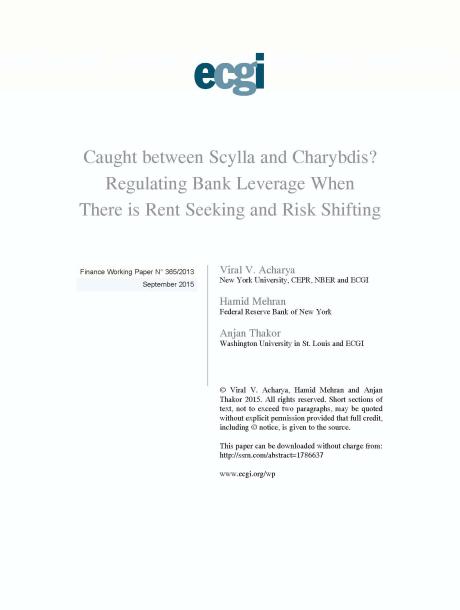
Finance Series
Caught between Scylla and Charybdis? Regulating Bank Leverage When There is Rent Seeking and Risk Shifting
Abstract
We develop a theory of optimal bank leverage in which the benefit of debt in inducing
loan monitoring is balanced against the benefit of equity in attenuating risk-shifting.
However, faced with socially-costly correlated bank failures, regulators bail out creditors.
Anticipation of this generates multiple equilibria, including one with systemic risk in which
banks use excessive leverage to fund correlated, inefficiently risky loans. Limiting leverage and resolving both moral hazards?insufficient loan monitoring and asset substitution?requires a novel two-tiered capital requirement, including a ?special capital account? that is unavailable to creditors upon failure.








